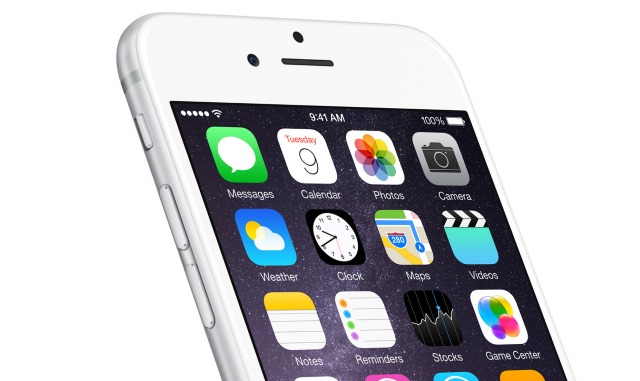
Apple now collects data from Safari using differential privacy to identify problem websites
With the launch of macOS High Sierra, Apple is making some changes to Safari. One of the key changes is the introduction of differential privacy technology which gathers data about the websites users visit in order to identify those that are problematic because of high memory usage or crashes.
As the name of the technology implies, as well as gathering useful data from users, one of the key features of differential privacy is that it respects the privacy of individuals. The AI-powered technology keeps, according to Apple's Craig Federighi, "the information of each individual user completely private" while still collecting data that will enable Apple to decide the priority with which it should tackle problematic sites.

Safari has more security vulnerabilities than all other major browsers combined
Apple's Safari has more security vulnerabilities than Google Chrome, Mozilla Firefox, Microsoft Edge and Internet Explorer combined, according to a new report from Google's Project Zero.
Using an automated testing tool called Domato, Project Zero's Ivan Fratric analyzed the most popular desktop browsers and discovered two security vulnerabilities in Chrome, four in Firefox and Internet Explorer, six in Edge and 17 in Safari.

WWDC 2017: Apple unveils macOS High Sierra -- here's what's new
It's WWDC 2017 and if there is one thing that you can count on is Apple showing off the new versions of its main operating systems. So, today, we catch a glimpse of macOS High Sierra, which is shaping up to be a pretty impressive upgrade over its predecessor, macOS Sierra.
There are a couple of notable new features in macOS High Sierra, namely the introduction of Apple File System, VR support, a better browsing experience in Safari, faster graphics, and improved video support.

After Apple's software patch, Consumer Reports now recommends the new MacBook Pro
In a shocking series of tests just before Christmas, Consumer Reports put the new MacBook Pro through its paces and came to the conclusion that battery life was so poor and so variable that it was the first MacBook Pro it could not recommend.
Apple was rather taken aback by the result and, after further investigation, blamed a hidden setting activated by Consumer Reports. This in itself exposed a bug in Safari. With this patched, the tests were re-run and the MacBook Pro is now the proud recipient of Consumer Reports' coveted 'recommended' award.

Apple discovers Safari bug from Consumer Reports' flawed MacBook Pro battery test
When Consumer Reports failed to recommend the MacBook Pro (2016) for poor battery life, many people raised an eyebrow. When the company suggested using Chrome instead of Safari for more consistent battery life, people's heads nearly exploded. Google's web browser has long been considered a battery hog, making many people -- including me -- doubt the findings by Consumer Reports. After all, my own MacBook Pro (2016) offers wonderfully consistent battery life.
Today we learn that Consumer Reports used flawed testing, which lead to the inconsistent and poor battery life on the computer. It used a hidden Safari developer setting which isn't normally used by consumers. With that obscure setting properly disabled, battery life is as it should be. So Apple is in the clear, right? Not so fast. As a byproduct of the flawed testing, Apple was able to discover a rare bug in Safari.

Warning: Chrome, Opera and Safari's auto form fillers make it easy to steal personal data
We're all looking for ways to save time and effort, so it's hardly surprising that some web browsers offer a feature that automatically fills in online forms with commonly requested personal information. While incredibly useful, the feature can also be exploited to extract data a user might not want to share with a particular website.
Chrome, Opera and Safari all offer to save and automatically fill in details such as name, address, phone number, and so on, and users are ordinarily only aware of the data which is obviously filled in on their behalf. But a web developer shows how it is possible -- and very, very easy -- to use hidden fields to secretly gather all of the information saved in an autofill profile.

In macOS Sierra, Safari 10 will simply ignore Flash in favor of HTML5
Flash -- despite the best efforts of many -- is not quite dead. It continues to hang around like a festering scab, just waiting to be cast off forever. With macOS Sierra, Apple is playing its part in consigning Flash to the history books, pushing HTML5 to the fore.
Following in the footsteps of Google Chrome, starting with Sierra, Apple's Safari will ignore Flash even if the legacy plugin is installed. HTML5 will be favored for each and every site -- a marked difference from Chrome which maintains a list of exceptions (such as YouTube) which could still make use of Flash.

Safari on iOS crashing for you? You're not alone, but here's a workaround [Updated]
As an iPhone and iPad user, I spend a fair amount of time in Safari. Today, however, the browser has been crashing for me every time I carry out a search via the address bar.
I first thought it was a problem with my iPhone, but then I had the same problem with my iPad. It turns out to be a problem that's affecting a lot of users.

Warning: This secret website can crash Safari, Chrome, and Firefox, plus reboot your iPhone!
For many of us, a web browser is our window to the world. It is how we get news, send emails and access social media to stay in touch with friends and family. Modern browsers, such as Chrome, Firefox and Safari, are very mature and stable, lending to a positive overall web-surfing experience.
Unfortunately, today, a malicious website has been going viral. If you visit this website by either typing in the URL or clicking a link, the browser will crash by consuming huge amounts of RAM.

How bad is iOS 9 ad blocking for Internet advertising?
On Sept. 16, 2015, Apple released iOS 9, which enables users of iPad and iPhone to disable ads. The company claims the capability improves the overall user experience. As someone covering the tech industry for more than two decades, I perceive it as something else, too: Competitive assault against Google and means of pushing publishers to iOS 9's new News app. There is nothing friendly about Apple's maneuver. It is aggressive and tactical. But does it really matter?
Stated simply: More than 90 percent of Google revenue comes from contextual and search-related advertising. Apple derives about the same figure from selling devices and supporting services. At the same time, mobile is the future of Internet advertising and the battleground where the two meet. The entities' respective mobile platforms, Android and iOS, long ago put the tech titans on a collision course. Conceptually, what Apple can't gain from iPad and iPhone sales, it can take by shaking pillars supporting its rival's business.

Block ads in iOS 9 with Peace
Ad-blockers are proving to be extremely popular with the early adopters of iOS 9. Shortly after the operating system's debut, Peace skyrocketed to the top of the paid apps chart on Apple's App Store, taking Minecraft: Pocket Edition's place on the podium, while rival Purify Blocker has risen to fourth place.
Current leader Peace is the work of iOS developer Marco Arment, best known for the popular read-it-later app Instapaper. Since Peace will surely get the attention of many more users, let's take a look at what it has to offer.

Dump Google Chrome to extend your MacBook's battery life
One of the main benefits to owning a MacBook is the superb battery life. Apple's laptops can work for a great deal of time on battery power alone, thanks in no small part to the numerous improvements made to OS X in recent years. Take my 2013 13-inch MacBook Air for example: it gets well over six hours of battery life on Yosemite, despite being nearly two years old at this stage. I rarely have to worry about plugging it in.
In fact, it could last even longer. The trick is not to use Chrome, which, despite Google's recent efforts to lower its power consumption, continues to be the most power-hungry major browser on OS X, more so than Apple's Safari and Mozilla's Firefox.

If iOS crashes, don't pay these scammers to get it fixed
There’s a new-old elaborate scheme going around the English-speaking world, and this one targets Apple users and their wallets.
According to a report by The Telegraph, iPhone and iPad users in the US and the UK have started getting pop-ups on their devices, telling them the iOS had crashed and that they need to call support in order to fix the problem.

iOS 9 users will be able to block ads
The next update to Apple’s mobile web browser Safari will include a way to block annoying ads, working similar to AdBlock Plus on desktop browsers.
Under the banner of user experience, Apple promoted the new loading system capable of blocking JavaScript, cookies and even images from displaying. The system came to the desktop version of Safari first. Users will be able to opt-in to this experience on iOS 9.

Safari is king of the mobile browsers -- which could be bad news for Google
Google’s dominance of the web is best illustrated by Mobilegeddon. The search giant has made changes to its algorithm, prioritizing sites that are "mobile friendly" and demoting those that aren’t. Google says that mobile-friendliness is just one of 200 signals that it uses to determine the ranking of results and that sites which don’t have mobile versions won’t disappear as a result of this change. That said, the truth is if Google says you need a mobile site -- that it approves of -- then you need a mobile site.
But while Google is forcing sites to offer mobile friendly versions or suffer the consequences, it’s Apple’s browser that the majority of people are using to access the web while on the go.
